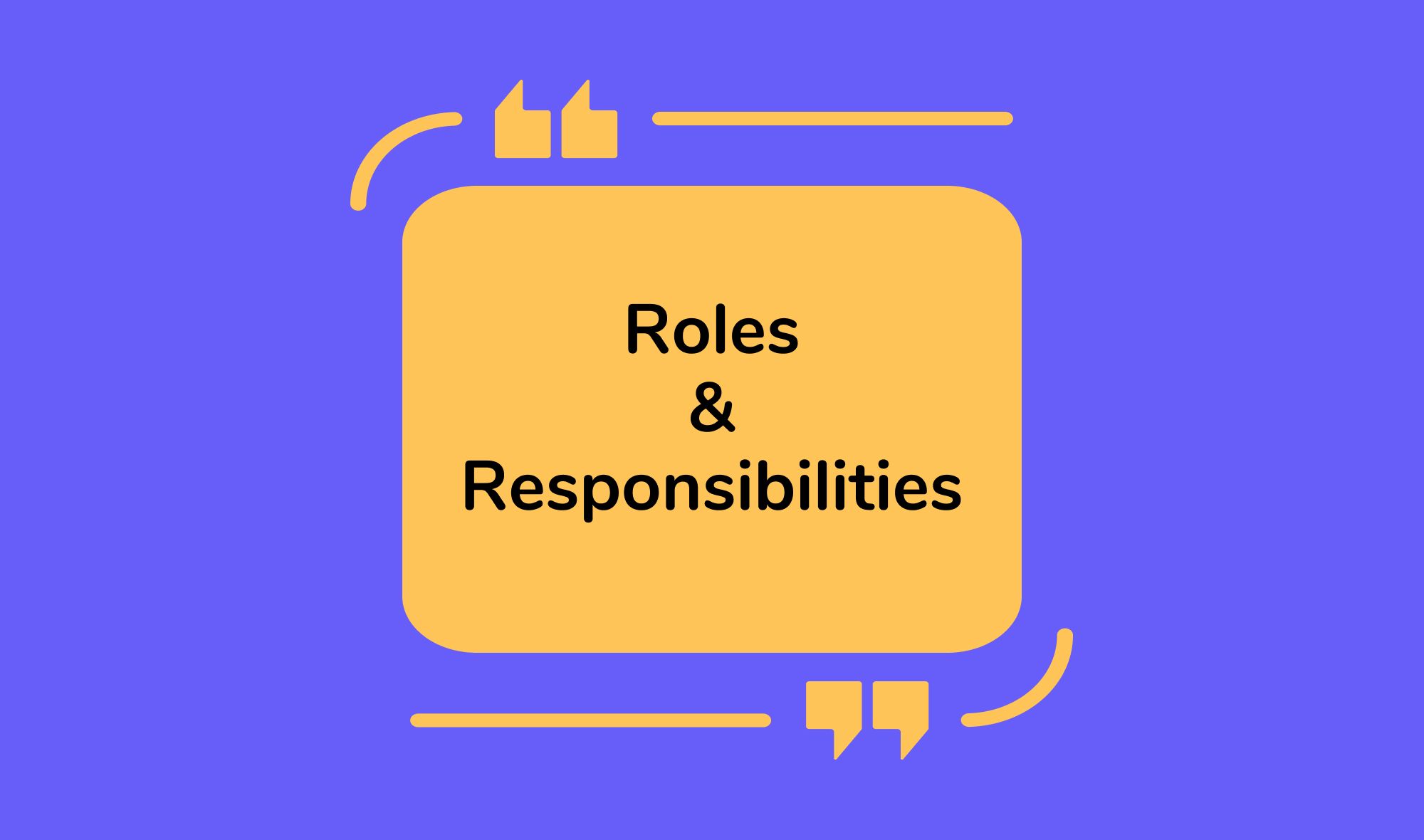Demystifying the middle manager: understanding their vital role in organizations
By Julian Lewis • May 19, 2023
Key Takeaways
- Middle managers are crucial in organizations, bridging the gap between top management and frontline employees.
- The middle manager rôle is complex and demanding, requiring a variety of skills and abilities.
- They have multifaceted roles, including translating strategy into action and fostering effective communication.
- Challenges faced by middle managers include burnout and the need for a delicate balancing act.
- Recognizing the importance of middle managers is vital for organizational success and fostering a positive work environment.
- Engaging mid-level managers is essential for fostering a positive work environment and driving organizational success.

In every organization, amidst the bustling activities and strategic decisions made by top executives, lies a group of individuals who serve as the unsung heroes of the business world and decentralization works best in companies. Not a lot of people know the definition of middle manager. They are the middle managers – the linchpins who bridge the gap between upper management and frontline employees. Despite their indispensable role, the significance and the real value of middle managers often goes unnoticed or misunderstood.
This blog post aims to demystify the world of middle management and shed light on the vital role they play in organizations. From defining what does middle management meaning to exploring the challenges they face, we will embark on a journey to uncover the complexities and contributions of these crucial individuals. Whether you aspire to be a middle manager or seek a better understanding of their impact, this comprehensive exploration will provide you with valuable insights into the inner workings of this indispensable layer of management. By the end of this we should be able to understand the difference between front line manager vs middle manager.
So, join us as we unravel the enigma of middle management and discover the power they hold in shaping the success and effectiveness of organizations. Let's delve into the realm of middle managers and gain a deeper understanding of their vital role in driving growth, fostering collaboration, and cultivating a thriving workplace environment.
Join our Newsletter
Transform your career with our personal growth insights. Get one valuable tip right in your inbox every Saturday morning.
Understanding Middle Management

Middle management serves as a critical link between upper management and frontline employees, playing a pivotal role in achieving organizational goals and driving success. Middle managers also play a critical role in building relationships and fostering a positive company culture. To grasp the essence of mid level management training, it is essential to explore the middle manager meaning, define their role, and understand the concept of middle-level management.
What is a middle manager?
Middle managers are professionals who occupy a significant position within the organizational hierarchy. They are responsible for overseeing a team or a department, translating high-level strategies into actionable plans, and ensuring the smooth execution of organizational objectives. Middle managers act as conduits for communication, facilitating the flow of information between senior leadership and employees on the ground. Their expertise lies in bridging the gap between strategic vision and operational implementation.
Middle manager definition
In simple terms, what do middle managers do? A middle manager can be defined as a managerial role that operates between senior management and frontline employees. They possess a unique set of skills, including leadership, communication, and problem-solving abilities. Middle managers are entrusted with the responsibility of aligning the operational activities of their teams with the broader strategic goals set by upper management.
The precise definition of a middle manager may vary across organizations, but their fundamental purpose remains consistent – to guide, coordinate, and support their teams in achieving organizational objectives while embodying the values and vision of the company.
Middle-level management: Exploring the concept
Middle-level management refers to the layer of management positioned between top-level executives and frontline employees. It encompasses the various managerial roles that exist within this intermediate level, such as department managers, team leaders, and division heads. Middle-level managers play a crucial role in translating the strategic vision set by senior management into actionable plans, ensuring effective implementation at the operational level.
This concept of middle-level management recognizes the need for a hierarchical structure that balances the strategic decision-making capabilities of top executives with the practical execution carried out by frontline employees. Middle-level managers provide the necessary guidance, coordination, and supervision to facilitate the smooth functioning of daily operations while aligning them with the overarching organizational objectives. They act as a critical link in elevating the organization to a higher management level, bridging the gap between strategy and execution.
By understanding the essence of middle management and delving into the concept of middle-level management, we can begin to appreciate the unique role and significance that middle managers bring to organizations. In the next section, we will explore the challenges faced by the example of a middle manager, including the detrimental effects of burnout and the responsibilities carried by mid-level executives.
For a more in-depth analysis of the middle manager and its impact on company growth, check out The secret weapon to your organization's growth and success: a middle manager.
Exploring the Challenges Faced by Middle Managers

Middle managers encounter a range of unique challenges in their day-to-day roles, which can significantly impact their well-being and effectiveness. In this section, we will delve into the phenomenon of middle manager burnout and discuss the delicate balancing act that mid-level executives must navigate.
Middle manager burnout: Unveiling the phenomenon

Middle manager burnout is a prevalent and concerning issue that affects both individuals and organizations. Due to their position as intermediaries between upper management and frontline employees, midlevel managers often experience high levels of stress and pressure. They bear the weight of strategic expectations from above while managing the demands and complexities of their teams.
The constant juggling of responsibilities, competing priorities, and the need to deliver results can lead to emotional exhaustion, reduced job satisfaction, and a decline in overall well-being. Middle managers may face challenges such as managing conflicts, handling increased workloads, and dealing with ambiguity. Challenges facing middle managers include navigating these pressures while maintaining effectiveness and morale. It is crucial to recognize the signs of burnout and implement strategies to mitigate its impact, both at an individual and organizational level.
Join our Newsletter
Transform your career with our personal growth insights. Get one valuable tip right in your inbox every Saturday morning.
Balancing Act: The role of mid-level executives
Mid-level executives occupy a unique position that requires them to strike a delicate balance between various stakeholders. They must effectively communicate the strategic vision of top-level management to their teams while advocating for the needs and concerns of frontline employees. Balancing the demands and expectations from above and below is an ongoing challenge that mid-level executives face.
Moreover, mid-level executives often find themselves in situations where they need to make difficult decisions and manage competing priorities. They must allocate resources, manage budgets, and ensure the successful implementation of organizational strategies. The ability to navigate these complex dynamics and maintain open lines of communication is crucial for their success.
Finding equilibrium as a mid-level executive involves cultivating strong leadership skills, fostering collaboration and teamwork, and developing effective communication channels. It requires the ability to adapt to changing circumstances, manage conflicts, and provide support and guidance to both superiors and subordinates.
By understanding the challenges faced by middle managers, including the risks of burnout and the delicate balancing act they must perform, organizations can better support and empower their mid-level executives. In the next section, we will explore the roles and responsibilities of middle managers, shedding light on their multifaceted contributions within organizations.
Join our Newsletter
Transform your career with our personal growth insights. Get one valuable tip right in your inbox every Saturday morning.
Roles and Responsibilities of Middle Managers

Middle managers play a crucial and multifaceted role within organizations, serving as the linchpins that connect upper management with frontline employees. In this section, we will delve into the various dimensions of their responsibilities, highlighting the significance of mid-level managers in driving organizational success.
Understanding the multifaceted role of middle management
Middle managers shoulder a wide range of responsibilities that contribute to the smooth functioning and success of organizations. Their role extends beyond merely overseeing teams and ensuring operational efficiency. Let's explore some of the key dimensions of their multifaceted role:
- Translating strategy into action: Middle managers are responsible for translating the strategic goals set by upper management into tangible action plans. They ensure that their teams are aligned with the organizational vision and objectives, making strategic goals more actionable and achievable.
- Operational coordination: Middle managers are the key coordinators within their departments or teams. They ensure the effective execution of tasks, coordinate workflow, allocate resources, and manage timelines. Their coordination efforts help streamline processes and enhance productivity.
- Team leadership and development: Middle managers serve as leaders for their teams, providing guidance, mentorship, and support. They foster a positive work environment, motivate team members, and help individuals develop their skills and reach their full potential.
- Performance management: Middle managers are responsible for monitoring and assessing the performance of their teams. They set performance goals, provide feedback, and identify development opportunities to enhance the capabilities and effectiveness of their team members.
The vital role of mid-level managers
Mid-level managers hold a vital position within organizations, contributing to the achievement of both departmental and organizational objectives. Their role encompasses several critical aspects:
- Implementing organizational strategies: Mid-level managers are instrumental in implementing strategies formulated by top management. They align the efforts of their teams with the strategic direction of the organization, ensuring that objectives are effectively pursued.
- Bridging communication gaps: As intermediaries between upper management and frontline employees, mid-level managers play a crucial role in facilitating effective communication. They relay information, provide clarity, and address concerns, promoting transparency and ensuring that messages flow smoothly between different levels of the organization.
- Change agents: Mid-level managers often act as change agents within their departments or teams. They drive organizational change initiatives, manage resistance, and help employees navigate transitions. Their ability to influence and motivate others is vital in facilitating successful change management.
- Decision-making and problem-solving: Mid-level managers are involved in day-to-day decision-making and problem-solving within their areas of responsibility. They analyze information, assess risks, and make informed decisions that align with organizational goals and values.
By understanding and appreciating the multifaceted roles and responsibilities of middle managers, organizations can harness their expertise and leverage their contributions effectively. In the next section, we will explore the dynamics of middle management further by examining the different levels and responsibilities within mid-level management.
Navigating the Middle Management Landscape

Middle management encompasses various levels and responsibilities that form the intricate landscape of this vital organizational layer. In this section, we will explore the different levels within middle management and unveil the dynamics that shape the role and middle level managers examples.
Mid-level management: Exploring the different levels
Within middle management, there exist different levels of managerial positions, each with its own set of responsibilities and scope of authority. Let's delve into the common levels that comprise mid-level management:
- Department managers: Department managers oversee specific functional areas or departments within an organization. They are responsible for managing teams, ensuring departmental goals are met, and coordinating activities to achieve optimal performance.
- Team leaders: Team leaders are mid-level managers who directly supervise a team of employees. They play a crucial role in guiding and supporting their team members, managing their workload, and facilitating collaboration.
- Division heads: Division heads are responsible for managing entire divisions or business units within an organization. They have a broader scope of authority and accountability, overseeing multiple departments and teams.
- Regional managers: In organizations with multiple locations or branches, regional managers oversee operations across specific geographic regions. They coordinate activities, ensure consistency in performance, and align regional efforts with organizational manager duties.
Unveiling the dynamics of middle management
Middle management is a dynamic realm that requires flexibility, adaptability, and strong technical skills for middle managers. Let's delve into the key dynamics that shape the role of mid-level managers:
- Balancing strategic and operational demands: Mid-level managers navigate the delicate balance between strategic direction from upper management and operational execution at the team level. They must understand the bigger picture while ensuring that day-to-day tasks are carried out effectively.
- Facilitating communication and collaboration: Mid-level managers serve as conduits of information, ensuring that messages flow both upwards and downwards. They foster a collaborative environment, promoting open communication and teamwork within their teams.
- Managing upward and downward influence: Mid-level managers must effectively communicate the needs and concerns of their teams to upper management, while also advocating for organizational goals and strategies to their teams. They act as mediators, leveraging their influence in both directions.
- Developing leadership capabilities: Middle managers are not only responsible for managing their teams but also for developing their own leadership skills. They must continually enhance their abilities to motivate, inspire, and lead their teams effectively.
Understanding the dynamics of middle management helps organizations create an environment that supports the growth and effectiveness of mid-level managers. By recognizing the different levels within middle management and acknowledging the complexities they navigate, organizations can empower and enable their mid-level managers to thrive in their roles. In the next section, we will explore the demographic profile and examples of middle managers, the importance they hold in organizational success.
Who Are the Middle Managers?

Middle managers are a diverse group of professionals who bring unique skills, experiences, and perspectives to their roles. In this section, we will explore the demographic profile of middle managers and highlight the critical importance they hold in organizational success.
Demographic profile of middle managers
- Educational background: Middle managers often possess a solid educational foundation, with many holding bachelor's or advanced degrees in their respective fields. They may have pursued degrees in business administration, management, or specialized fields related to their industry.
- Work experience: Middle managers typically have a wealth of professional experience that has equipped them with the necessary knowledge and expertise to fulfill their roles. They may have progressed through various positions within the organization or gained experience in different industries before assuming their current roles.
- Leadership and management skills: Middle managers possess a range of leadership and management skills that enable them to effectively lead their teams. These skills include communication, decision-making, problem-solving, and the ability to navigate complex organizational dynamics.
- Diversity: Middle managers come from diverse backgrounds, representing a variety of ethnicities, genders, and cultures. Embracing diversity within middle management contributes to a broader range of perspectives, ideas, and approaches to problem-solving, fostering innovation and inclusivity within organizations.
The importance of middle managers in organizational success
Middle managers play a pivotal role in the success of organizations. Their contributions extend beyond their immediate teams and impact the entire organization. Here are some reasons why middle managers are crucial:
- Bridging the gap: Middle managers serve as the essential link between top-level management and frontline employees. They ensure that strategic goals and decisions are effectively communicated and translated into actionable plans, fostering alignment and driving organizational success.
- Implementing strategies: Middle managers are responsible for implementing strategies formulated by upper management. They guide their teams in executing plans, monitoring progress, and making necessary adjustments to achieve desired outcomes.
- Enhancing communication: Middle managers facilitate effective communication within the organization. They relay information, ensure clarity, and address concerns both upward and downward, fostering transparency, trust, and collaboration.
- Driving employee engagement: Middle managers have a significant impact on employee engagement and satisfaction. They create a positive work environment, provide support and guidance, and recognize and reward employee contributions, fostering motivation and loyalty.
- Nurturing talent: Middle managers play a vital role in talent development and succession planning. They identify and develop high-potential employees, provide coaching and mentorship, and create opportunities for growth and advancement.
By recognizing the importance of middle managers and valuing their contributions, organizations can create an environment that nurtures their growth and maximizes their potential. In the next section, we will conclude our exploration by summarizing the key points discussed and reinforcing the vital role of middle managers in organizations.
Conclusion
Middle managers, the unsung heroes of organizations, play a vital role in driving success, fostering collaboration, and cultivating a thriving workplace environment. Throughout this blog post, we have demystified the world of middle management, shedding light on their essential role and contributions. From understanding what a middle manager is and exploring the challenges they face to uncovering their multifaceted responsibilities and navigating the dynamics of middle management concepts reviews, we have gained a comprehensive understanding of this indispensable layer of management.
Middle managers serve as the linchpins, bridging the gap between upper management and frontline employees. They translate strategic vision into actionable plans, coordinate operations, and provide guidance and support to their teams. Their role extends beyond their immediate responsibilities, as they facilitate communication, drive engagement, and shape organizational culture. They are the driving force behind the implementation of strategies and the achievement of organizational goals.
Middle managers face unique challenges, including the risk of burnout and the delicate balancing act they must perform. However, by recognizing and addressing these challenges, organizations can empower and support their mid-level executives to thrive in their roles. Through effective leadership, collaboration, and a focus on well-being, organizations can create an environment that enables middle managers to excel and contribute to organizational success.
As we conclude our exploration of middle managers, let us acknowledge their significant contributions and the importance they hold within organizations. Their expertise, skills, and dedication shape the success and effectiveness of organizations, driving growth, fostering collaboration, and cultivating a thriving workplace culture.
So, let us celebrate the middle managers – the driving force that brings strategic vision to life, ensures effective implementation, and empowers teams to reach their full potential. By recognizing their vital role and providing the necessary support, organizations can unleash the true potential of middle managers and elevate the success of the entire organization.
For more information on becoming an executive coach and mastering the skills required, check out How to Become an Executive Coach: The Ultimate Guide.
Read more about: Professional Development, Executive Coaching
About Julian Lewis
Julian Lewis is a driven and accomplished professional with a passion for driving positive change in the business world. He is the co-founder and COO at Zella Life.
His own experience as a professional of color in a Fortune 500 company led him to discover the limitations for advancement that many professionals like himself face. Determined to reach his full potential, Julian became an established business coach and entrepreneur, committed to supporting others in their pursuit of personal and professional growth.
Today, Julian is a recognized corporate trainer, coach, and leader, known for his ability to leverage real-life experiences and evidence-based methodologies to affect positive change within individuals and organizations. As the leader of Zella Life's coaching division, he is dedicated to empowering individuals and businesses to achieve their full potential.